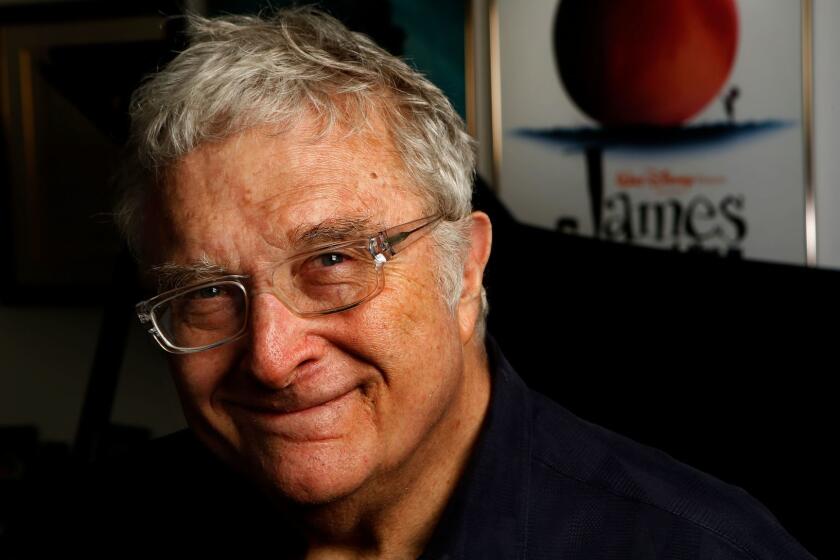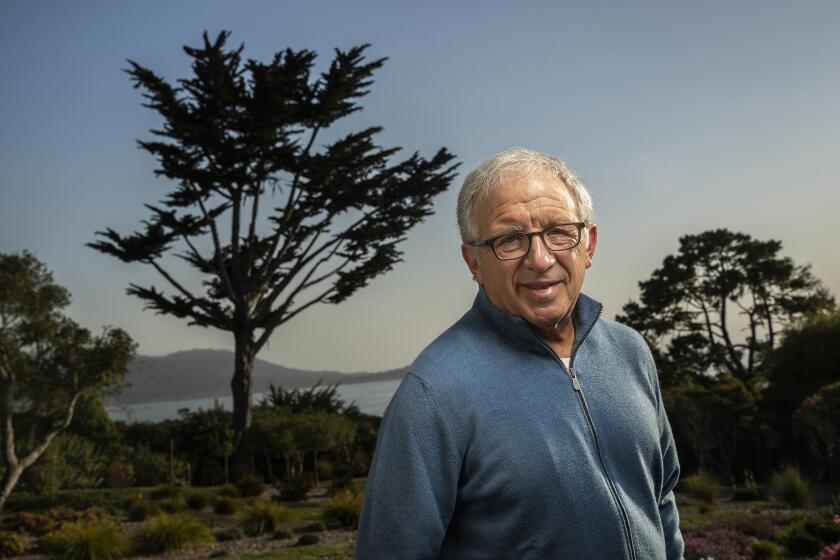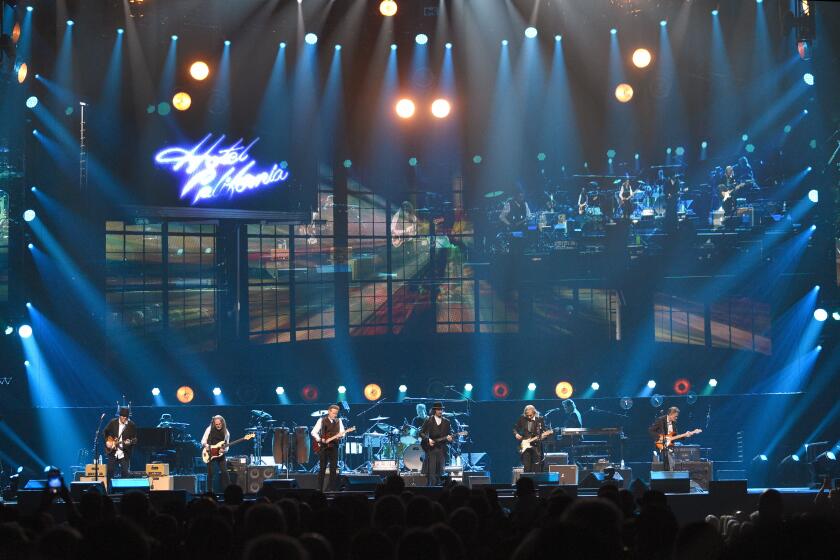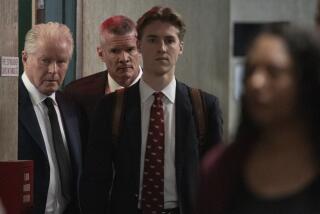Trio charged in plot to sell stolen handwritten Eagles lyrics for ‘Hotel California’
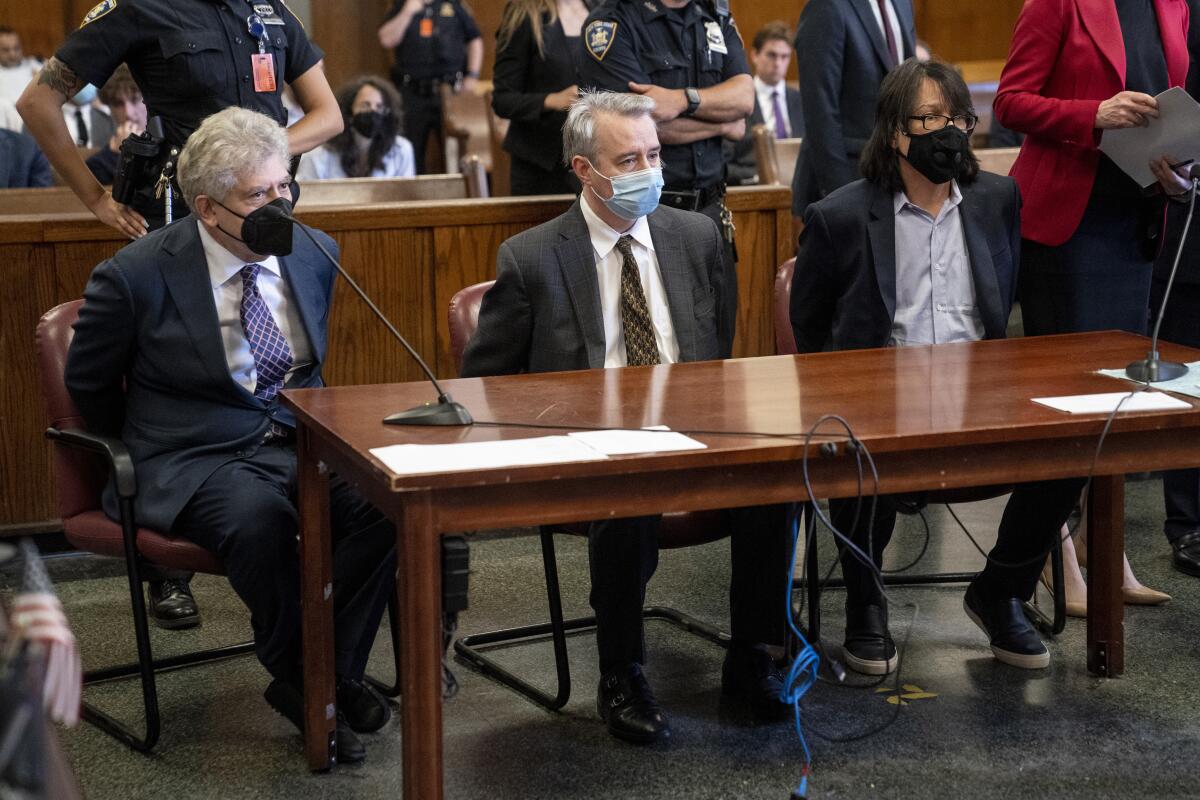
- Share via
Three men were indicted Tuesday in New York for allegedly conspiring to sell handwritten notes and lyrics for the Eagles album “Hotel California” — papers that band member Don Henley says were stolen in the late 1970s.
The 100 allegedly stolen pages include the lyrics to the songs “Hotel California,” “Life in the Fast Lane” and “New Kid in Town.” Collectively, they are valued at more than $1 million.
Glenn Horowitz, Craig Inciardi and Edward Kosinski were all charged in New York Supreme Court with one count of fourth-degree conspiracy, according to a news release from the New York County D.A.’s office. Horowitz was also charged with first-degree attempted criminal possession of stolen property and two second-degree counts of hindering prosecution, while Inciardi and Kosinkski face first-degree charges of criminal possession of stolen property.
Attorneys representing the defendants said in a joint statement Wednesday: “The DA’s office alleges criminality where none exists and unfairly tarnishes the reputations of well-respected professionals. We will fight these unjustified charges vigorously. These men are innocent.”
Don Henley first came into contact with singer-songwriter Randy Newman after the Eagles’ co-founder, drummer, singer and songwriter moved to California from Texas to pursue music beyond the boundaries of the Lone Star State and its neighbors.
Henley’s manager Irving Azoff said in a statement Tuesday: “This action exposes the truth about music memorabilia sales of highly personal, stolen items hidden behind a façade of legitimacy,” describing the pages as “irreplaceable pieces of music history.”
“These handwritten lyrics are an integral part of the legacy Don Henley has created over the course of his 50-plus-year career. We look forward to the return of Don’s property, for him and his family to enjoy and preserve for posterity,” Azoff continued.
The pages were stolen in the late 1970s by an author who had been hired to write a biography of the band, the D.A.’s news release said, citing court documents. (The Times was unable to obtain those documents before this article was published.) That biographer wound up selling the pages in 2005 to rare-books dealer Horowitz, who in turn allegedly sold them to Inciardi and Kosinski, the release said.
The famously pugnacious music manager and live entertainment tycoon will be inducted into the Rock and Roll Hall of Fame on Saturday.
Henley filed police reports once he learned that Inciardi and Kosinski were attempting to sell the papers, told the men that the papers were stolen and demanded their return. “Rather than making any effort to ensure they actually had rightful ownership, the defendants responded by engaging in a years-long campaign to prevent Henley from recovering the manuscripts,” the release said.
Kosinski and Inciardi allegedly attempted to fabricate a record of ownership of the papers — their provenance — and used that false provenance to try to get Henley to buy back his own papers, the release said. Simultaneously, they allegedly tried to sell the documents through Sotheby’s. The D.A.’s office said it retrieved the papers from the auction house and from Kosinski’s home in 2016 after executing search warrants.
After that, the release said, Horowitz showed law enforcement a new, allegedly false statement of provenance stating that the papers had come from Eagles co-founder Glenn Frey, who died in January 2016. Horowitz said in one email that because Frey was dead, “identifying him as the source would make this go away once and for all.”
For the first time ever, the Eagles played the “Hotel California” album in its entirety, after which they performed two-plus hours worth of hits.
“New York is a world-class hub for art and culture, and those who deal cultural artifacts must scrupulously follow the law,” New York County Dist. Atty. Alvin L. Bragg Jr. said Tuesday in a statement. “There is no room for those who would seek to ignore the basic expectations of fair dealing and undermine the public’s confidence and trust in our cultural trade for their own ends.
“These defendants attempted to keep and sell these unique and valuable manuscripts, despite knowing they had no right to do so.”
More to Read
The biggest entertainment stories
Get our big stories about Hollywood, film, television, music, arts, culture and more right in your inbox as soon as they publish.
You may occasionally receive promotional content from the Los Angeles Times.
